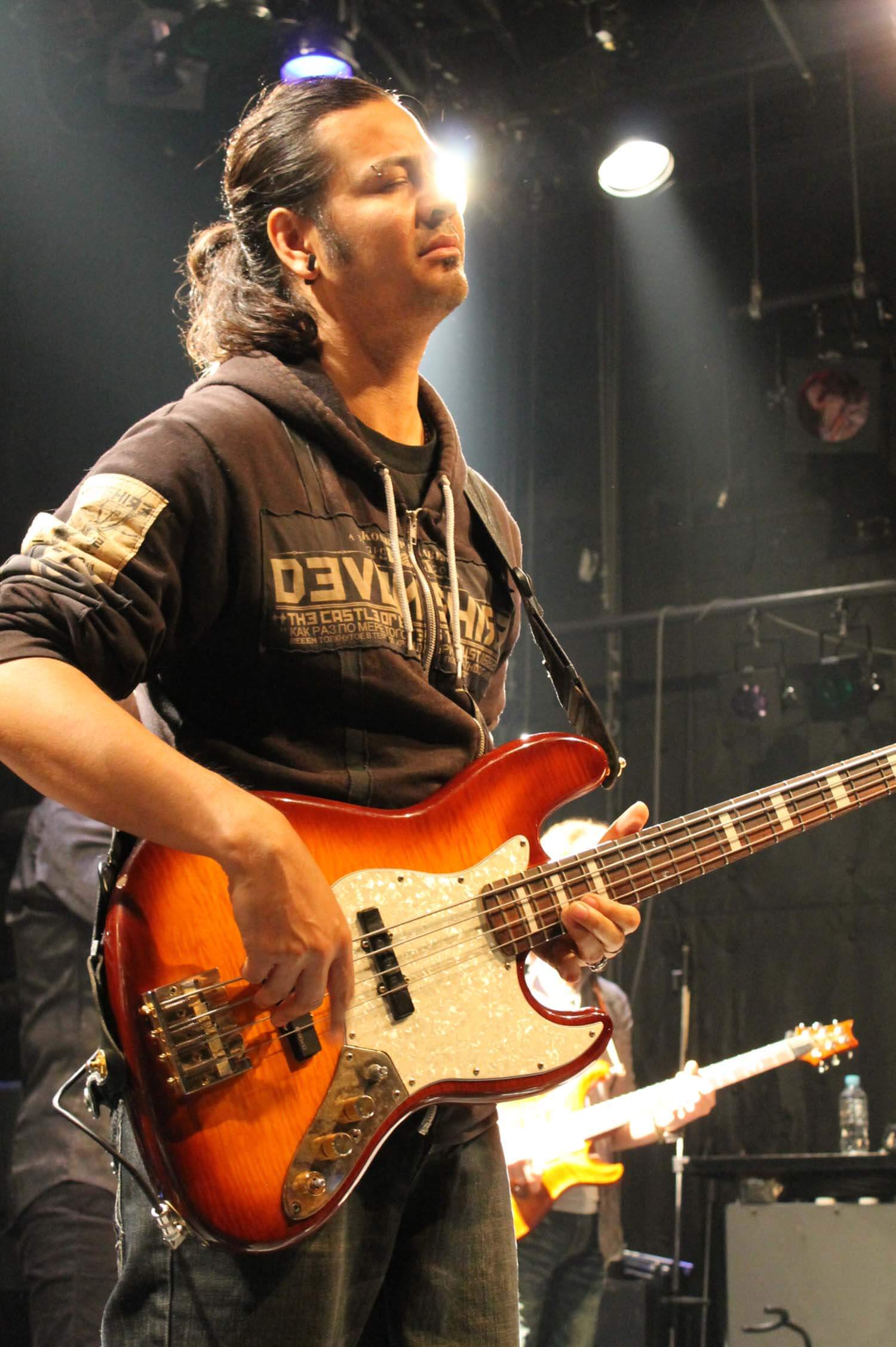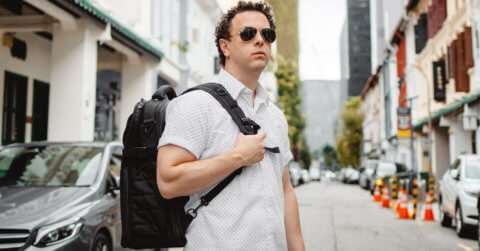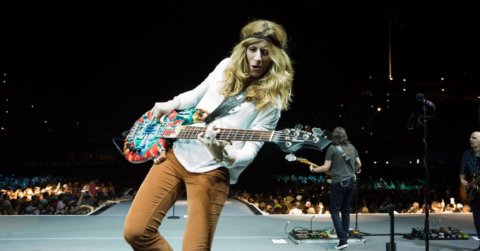A lot of you would recognise Uriah Duffy as the former bassist of hard rock band Whitesnake, but his accomplishments go so much further. A session bassist and musical director today, Uriah Duffy finds himself at home with any genre of music. He’s played with some of the most respected musicians in the world, with names like Christina Aguilera, The Family Stone, Ledisi, Liv Warfield, Fantastic Negrito, Starship, Too $hort, The Coup, Steve Stevens, Marvel Comics and Points North.
We were fortunate to have been able to chat with Uriah about his career, his biggest breaks, and what it takes to become a musical director.

What was one of the key moments that made you want to be a musician?
I used to watch my dad play guitar at rehearsals, but I was always interested in the big 4-string guitar. I saw many shows as a kid, but around 8 or 9 years old was when it really began to kick in, most likely after seeing the band Rush. I got my first bass in 1985 & haven’t put it down since then.
Who are some of your musical heroes?
Geddy Lee, Billy Sheehan, Jaco, Victor Wooten, MonoNeon, Joe Pass, George Benson, Prince, Quincy Jones, Jimi Hendrix
What do you never leave home without when you’re on tour and why?
My laptop is the hub to keep the business running efficiently- from booking flights to editing tracks or recording bass for a client- it really plays an important role. I probably use the calendar program the most.
What’s your pre-gig ritual?
I used to get made fun of in Whitesnake when everyone was getting pumped up for the show, as they’d be rehearsing vocals and getting in the zone, while I’d rather catch a disco nap. It doesn’t take me any real time to get ready for a show, and the conservation of energy helps me spring into action for longer periods of time. Water is also very important.
What accessory can’t you function without when playing live and why?
My wireless unit- even on small stages. Ever since the first digital wireless systems were introduced years ago (X-Wire), I’ve been closely following the technology over the years as it’s matured through different names (Sennheiser D1000, X2Digital & now Line 6 Relay). Special shout out to Guy Coker for his amazing work developing this technology all these years! With the sound quality no longer muffled by compander circuits of the old systems, the clear digital system enables me freedom to roam, or at the very least, not get tangled in my own cable.
I try to keep my equipment world as streamlined as possible. MONO has enabled me to do so by making durable bags I can trust day in and day out without having to ever worry.
What MONO gear do you use at home, in the studio or on tour?
The FlyBy works for me as a great all around backpack & I love the removable laptop case. Very useful. I also tote the Single and Dual Electric Bass cases depending on the gig. The Tick Pedalboard case is an amazing piece that can be used for pedals or as a nice tight accessory bag. When velcroed on to my Single gig bag, it’s very easy to maneuver even when boarding a plane.
What is it about the product that you like and why?
It just works without worry – I don’t even have to think about the gear.
What would be your fantasy band line-up?
I actually put this in my high school yearbook as a wish – Steve Vai, Dave Weckl & Victor Wooten. That was then. Currently, it’d be great to see D’angelo, MonoNeon, George Benson, Nate Smith & Hiromi. I’d pay to see that.
What are some of your favorite albums of all time?
D’Angelo’s Voodoo. Erykah Badu’s Live album, Chili Peppers’ Blood Sugar Sex Magic, MonoNeon’s A Place Called Fantasy, Rush: Exit Stage Left, Metallica’s And Justice For All, Slayer’s Seasons in the Abyss, Michael Jackson’s Off The Wall, Stevie Wonder’s Innervisions.
What’s coming up next for you and your career?
This year I made my first decision NOT to go on a major world tour. This was with an artist whose values I’m very much aligned with and respect. It was a tough decision, but I realised that when out on the road with one artist, everything else in life gets put on hold. I had 4 European tours last year alone. They were amazing, but everything from my other bands to my home life was literally put on hold. I’m always fine-tuning the best life-work balance for me, and leaving a multiple month tour out of the equation opened up many new possibilities. This year I’m going back out with the amazing Liv Warfield, who is not only a great friend but a beast of a talent (which led to TV appearances, tours & performing with Prince & Paisley Park). I’m also currently writing a 3rd album with my bandmates in Points North, an instrumental progressive rock trio.
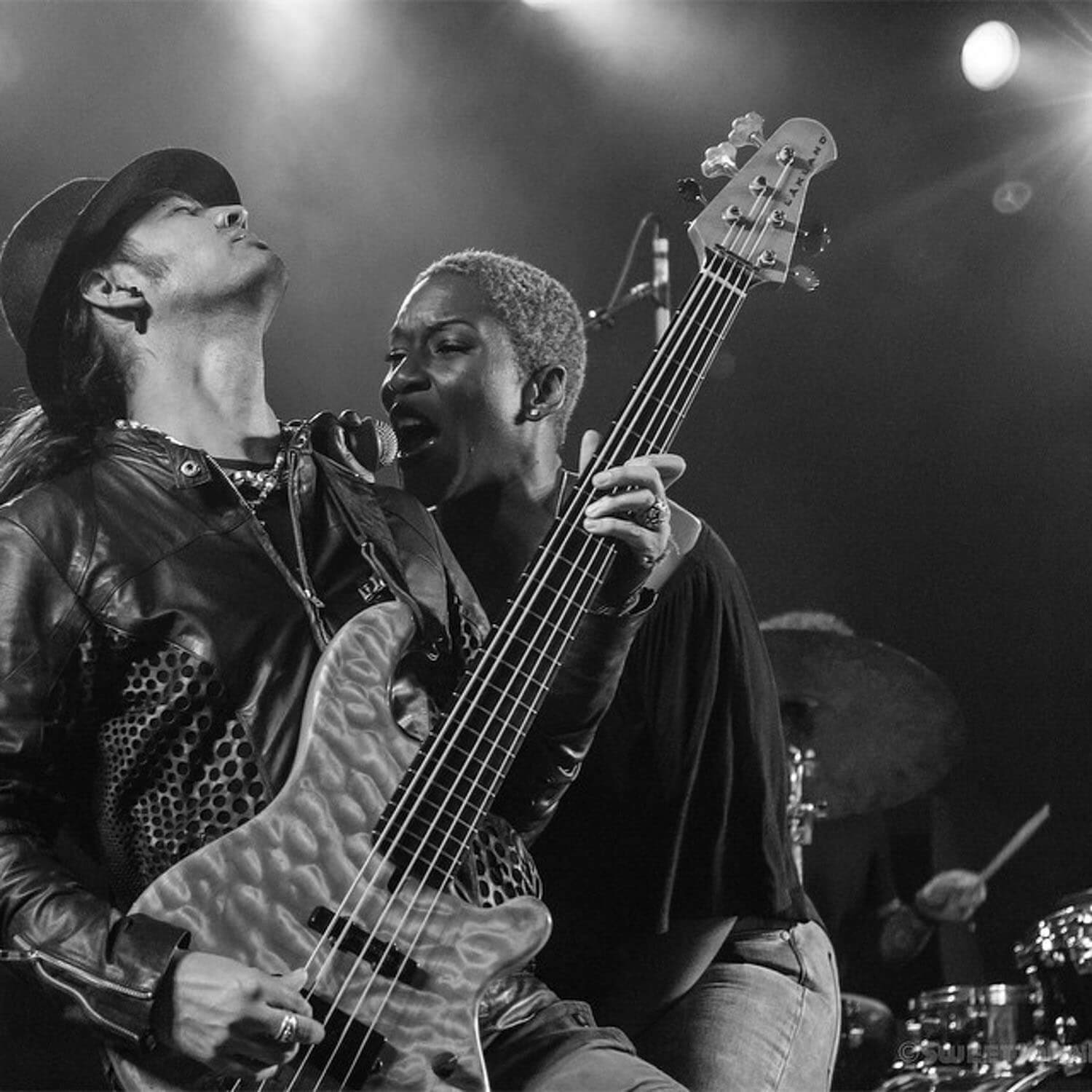
What I’d love to do is continue choosing great artists to work with- to help them with their basslines, performances or even the direction of the band. I also have an amazing black book of relationships with musicians over the years, and will occasionally book all-star bands (and other talents) for events. The biggest thing that’s on the back burner the most is the Uriah Duffy Band, which I will one day find the time to get out of my own way and produce completely. I could use some help there for sure.
What do you consider to be the key traits that enabled you to transition from a player to a music director?
My ability to foresee problems before they happen, combined with being a geek on the computer since I was a kid. Preparation for everything ahead of time, including preparedness for the unknown, is essential to making sure a project or event runs smoothly. On the musical side, I believe that being a bassist is a very advantageous perspective for a band leader. Understanding both Rhythm and Melody is key when directing the band.
For players that want to become music directors in the future, do you have any key suggestions?
Be psychic and organized. Learn and use the tools & technology available to you and the rest will be a piece of cake…
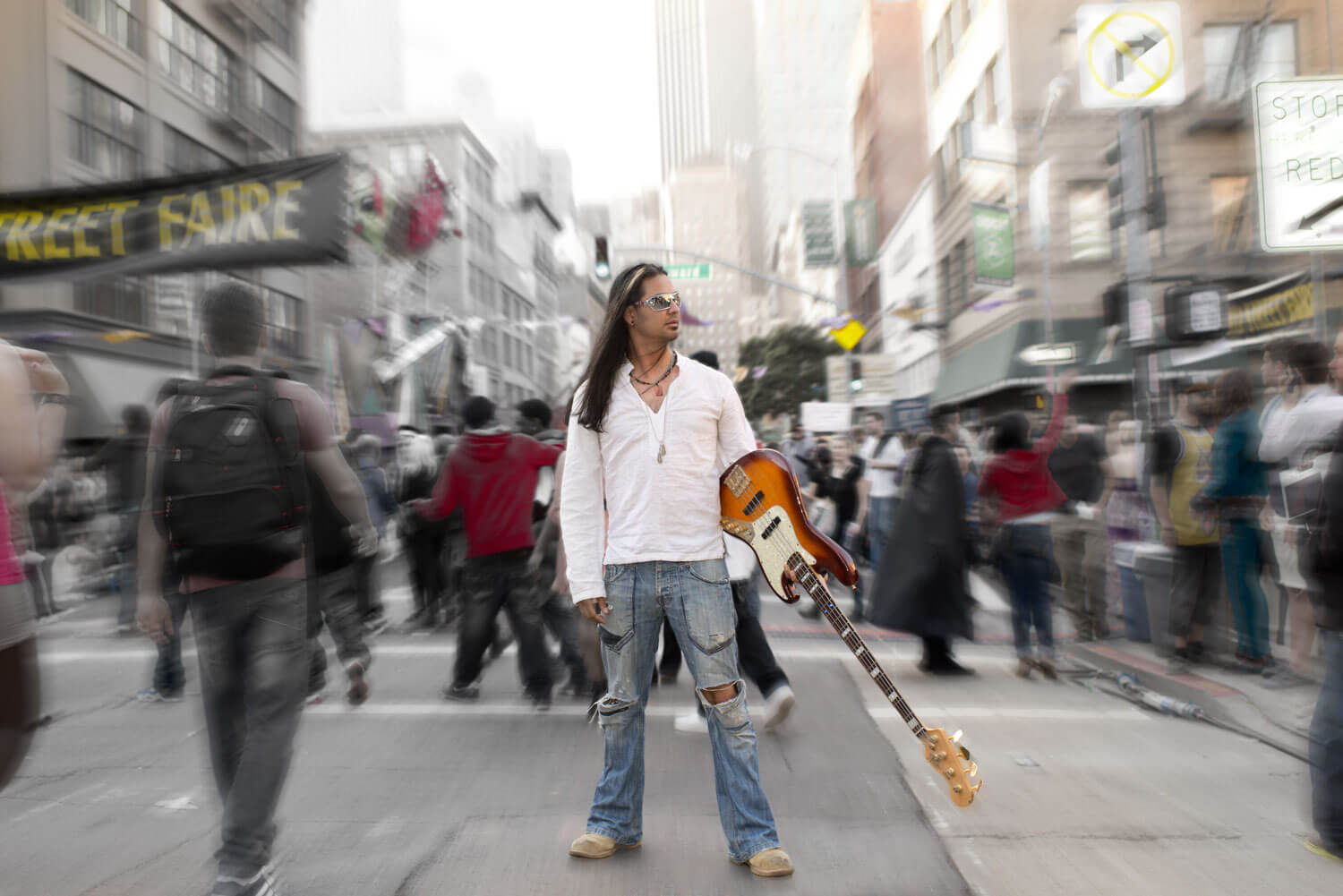
Communication, management and business skills. Reliability, ego, attitude. Compared to actual musical skills, how important are these elements?
There’s a baseline of musicianship one needs to even get in the door, however, I’d argue that over time, the other “whole package” skills are more important. One should really strive to be the whole package. I think it’s safe to say that a band leader would be better off hiring someone that has slightly lesser musical skill but checks all those other boxes- learns the tunes; shows up on time; isn’t a pain in the butt, etc..
Looking back, what were the key first big breaks and opportunities you got as a player?
The Family Stone took a chance on me when they learned that I could recreate their music & feel. Larry Graham is perhaps one of my biggest influences overall, and it comes through in my playing. It was an honor to be a part of their later legacy, and to have become and remain close with the original players for so long.
Marvel comics enjoyed the hybrid Rock/Orchestral production produced by myself & Eric Barnett so much that we were contracted to create over 45 min of in-game music for the popular Marvel Heroes video game.
Prince took a chance on me by placing me with his singer Liv Warfield, and to this day we’re still rocking, with plans for new music, shows and fun. I’m in awe of those who have taken a chance on me, and in turn, I have learned to take chances with others that are up and coming.
Looking back, what were the key first big breaks and opportunities you got as a music director?
The biggest one was showing up as MD to a rehearsal in NYC, to a room of 11 badass musicians, many of whom did not know each other. My job as MD was to get the band rehearsed in a few hours to play 2 or 3 tunes live on the Kelly & Michael show the next morning (along with 8 Xmas standards). During rehearsal, management kept changing which originals we were to perform, which had me rushing during lunch to download & edit new stems & backing tracks from the producer. I was prepared for anything (using logic) and we all got the job done. Easy. The artist was CeeLo Green, whom I was successfully able to plug into the band’s arrangements at 6pm when he arrived. But yeah- that was a great experience- the type of which I’d love more of.
Besides touring, sessions and one-off gigs, what other services and projects do you do to help maintain a sustainable career both financially and creatively?
You mean like hobbies? I flirt in and out with making my own line of Chili Oil that is amazing. I’ve produced & sold over 500 bottles in the past and may do so again in the near future. I also have a background in graphic design and have more recently moved into the field of motion graphics. For the most part I continue to take a variety of gigs. Such work doesn’t just place me behind the bass, but also provides much more: experience, pay, networking, social fun, etc… What I don’t make financially in life is overshadowed by the freedom I do make- you gotta see the whole picture and pinpoint what is valuable to you. Many folks work so hard for someone else their whole life, trying to save money to attain freedom at some point in their later years when they retire- when they’re old. I’m always finding a balance so I can have that freedom of choice, life, & schedule NOW. By doing hard work, keeping a low overhead, and low financial commitments it is very possible, even in the Bay Area.
You can check out the MONO gear Uriah uses here, and our full catalog here.
